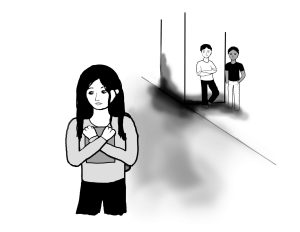After news broke that Israel declared war against Palestine, it wasn’t long until Black Solidarity chapters started to post their solidarity with Palestine and support the Free Palestine Movement. The unconditional solidarity between Palestinian and Black activists is historical.
In the 1950s, Malcolm X was the first Black activist to show his support for the “Arab cause.” X said in an interview with New York Amsterdam News that, “People of color in the U.S. would be in sympathy with the Arab cause.” Malcolm X taking a stance with Arabs caused more Black activists to get educated, or at least aware, of Israel’s ongoing conflict with Arab nations. What created a shift in many African American activists and individuals across the country was the result of the Arab-Israeli War in 1967, where Israel defeated Syria, Egypt, Jordan, Gaza and other territories. This quickly alarmed activists about Israel’s occupational forces in Gaza and the West Bank. Many Black Americans and Black activists acknowledged Israel’s founding in 1948, but after the Arab-Israeli War, a diverse conversation started to occur in many Black communities across our nation.
The Student Nonviolent Coordinating Committee, founded in 1960, operated a Black press that released a published article about the Arab-Israeli War, called the “Third World; The Palestinian Problem” that referred to Israel as an “illegal state’’ and described Palestinians to be victims of Zionist, British and U.S aggression. This article caused many Black Americans to check their knowledge about the Palestine and Israel conflict, but this caused a rift between Black activists in America. The ongoing disagreement within the Black community resulted in a “long, hot summer of unrest in the U. S. cities.” Black Civil Rights leaders Bayard Rustin and A. Philip Randolph no longer associated themselves with the SNCC and created the Black Americans to Support Israel Committee and collected other Black activists’ support for their organization. In this rift within the Black activist community, the pro-Palestinian Black activists were outnumbered and dealt with continuous criticism.
In 2023, the discourse about Palestine and Israel is still very similar. The only difference is that pro-Black Palestine activists are not the minority anymore; many African Americans have shown their solidarity with the Palestinian movement. The connection between Black Americans’ fight for liberation and Palestinian’s fight for liberation intensified in 2014 during the Ferguson protests. The Ferguson protests erupted when a white police officer in Ferguson, Missouri shot and killed 18-year-old Michael Brown. The Ferguson protests were state-wide demonstrations and had a strong presence on social media, which resulted in many Palestinian activists and individuals not only sharing their solidarity but also giving Ferguson protesters tips on how to deal with “tear gas” and giving any kind of help they could to the movement.
The support from Palestinians in America and even in Gaza was a memorable depiction of unity between two oppressed communities. A Palestinian activist named Baseem Masri, who died in 2014, was an individual who actively protested and live streamed the protests in St. Louis after Michael Brown was murdered. He wrote in a piece that, “For over 66 years, mainstream America has maligned and dismissed Palestinians’ accounts of our oppression. Now that the same kind of repression is being experienced at home, more and more Black Americans see the connections and understand the Palestinian struggle. When I showed up to protest in Ferguson and introduced myself as a Palestinian, people there immediately met me with respect.”
Many African Americans can reconcile their interactions with law enforcement and the treatment protesters endured during the yearly presence of the Black Lives Matter movement. The Palestinian and Black struggles for liberation are embedded within one another. The same kind of systems of oppression Palestinians endure can be seen within the systems of oppression Black Americans endure. Whether it’s police brutality or medical negligence, it’s all similar. Black people should especially know what it feels like to have their identity and have their testimonies to injustices be questioned. Now is the time to show your solidarity, now is the time to protest and amplify the voices of our Palestinian brothers and sisters, because we are not free until we all are.









